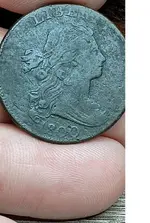Red James Cash
Banned
- Aug 20, 2009
- 12,824
- 7,901
- Detector(s) used
- Garret Master hunter Cx Plus
- Primary Interest:
- Other
Ah yes gfordtx, but we already know who you are, and will turn you in to the IRS for tax evasion. Tsk Tsk. You can't hide now. We know you're a prison gaurd in Texas, and it wouldn't be hard for us to subpoena records from T'net to get your name and, and trace you back to your address and computer. Your goose is cooked when the IRS learns you put the $ in a swiss bank account to avoid taxes. Also when the IRS finds out you incorrectly listed their FACE value ($20 each) rather than their REAL value $1.5k to $2k minimum each)......... oh my goodness. They're going to be saving a bed space for you in the prison you used to work at. Oh me oh my
And if the I.R.S. doesnt get you the NSA will




 Haha
Haha



